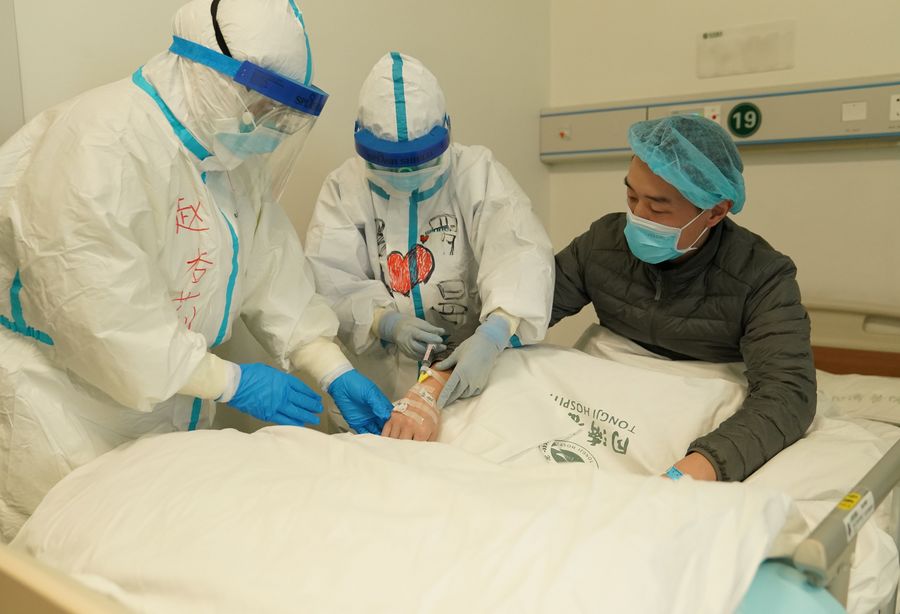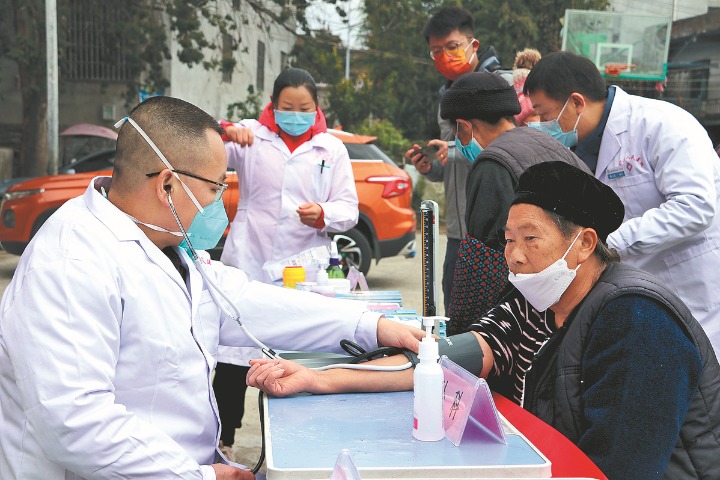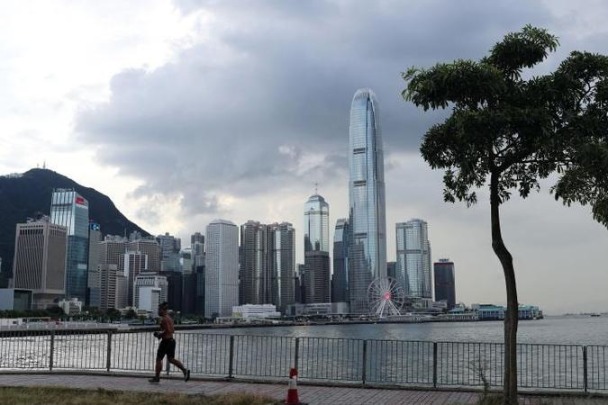Study to focus on level of immunity in Wuhan

Doctors in Wuhan, Hubei province, have designed epidemiological studies to try to discover the level of herd immunity to novel coronavirus in the city, an expert said.
Several epidemiological studies, based on serological screenings to find out how many healthy people have been infected by the virus without showing many symptoms, will be conducted in Wuhan, the Chinese city hit hardest by the outbreak, Zhang Wenhong, leader of the Shanghai team of experts in the treatment of novel coronavirus pneumonia, told China Global Television Network in an interview broadcast on Thursday.
He said the results were likely to be obtained in a few weeks.
"I speculate that a certain percentage of residents in Wuhan have already acquired immunity to the virus and herd immunity was probably forced, to a certain extent, on the city, where a large number of patients were infected with the virus," said Zhang, who is also director of the department of infectious diseases at Shanghai Huashan Hospital Affiliated with Fudan University.
"So I think in China, the city with probably the highest immunity to the virus would be Wuhan. In the long run, it may be the safest city in the country."
He said the results of the study will verify such speculation by determining the levels of certain antibodies to the virus.
The World Health Organization is also planning an international study to test blood samples for the presence of antibodies to the virus. The program, Solidarity II, which will involve more than half a dozen countries, will be launched soon, Science magazine quoted Maria Van Kerkhove, the head of WHO's emerging diseases and zoonosis unit, as saying.
Knowing the true number of cases, including mild ones, will help pin down the prevalence and mortality rate of novel coronavirus pneumonia in different age groups and will also help policymakers decide the best duration for shutdowns and quarantines, Michael Ryan, WHO's executive director for health emergencies, told a news briefing on March 27.
Some other Chinese experts have also suggested epidemiological studies among people across all age groups in Wuhan to discover the rate of immunity to the virus and thus the rate of asymptomatic infections.
"A common belief in academic circles is that the virus won't be eliminated this year and there may be a rebound curve in winter," said Jiang Qingwu, a professor from the School of Public Health at Shanghai's Fudan University. "Such study results may provide insights and solutions to public health and the epidemic fight before the next peak season of the contagion arrives."
If the rate of asymptomatic infections turns out to be higher than researchers and doctors have estimated, that means the pandemic may be more difficult to bring under control, he said.
Such studies should be initiated as soon as possible, since one type of antibody in the blood only exists for a few days after infection, Jiang said.
To make the results of such studies stable and reliable, at least 10,000 people need to be tested, he said.
Jiang said that several young researchers at the school were interested in conducting independent epidemiological studies in the area, and it was important to conduct them among the close contacts of confirmed cases.
Jiang said he disagreed with some modeling studies that suggested the rate of hidden coronavirus infection in Wuhan could be close to 60 percent.
He said that if the rate was that high, the outbreak in the city, and in the rest of the country, could not have been brought under control with the measures taken in the past two and a half months.
zhouwenting@chinadaily.com.cn
Please feel free to contact us by sending your questions to question@chinadaily.com.cn or commenting on China Daily app. We will ask experts to answer them.














